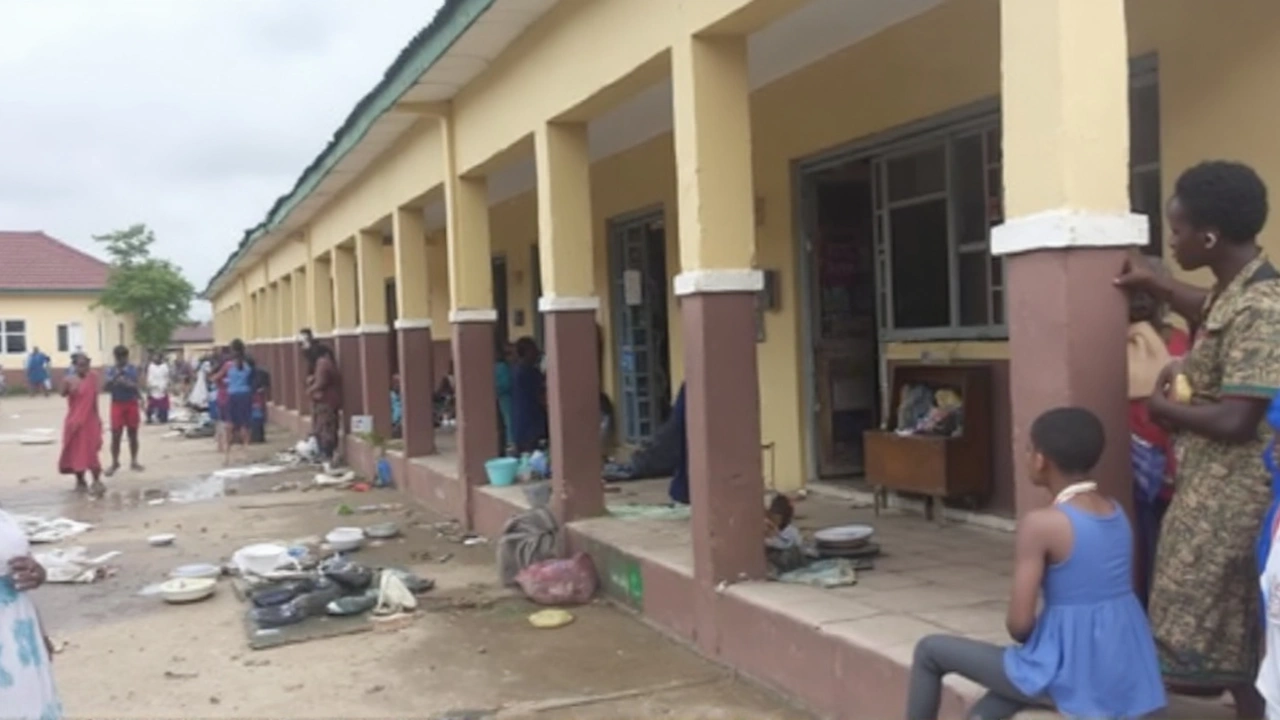Maiduguri Floods – What’s Happening and What You Need to Know
Heavy rain has turned the streets of Maiduguri into rivers, and thousands of families are scrambling for safety. If you live in Borno State or have relatives there, you’ll want the facts straight away – why it’s happening, how badly it’s hit the city, and what you can do right now to stay out of danger.
Why the floods are hitting Maiduguri
The main culprit is the seasonal downpour that hits the Sahel every year. This time the rains were far above normal, pushing the Komadugu Yobe River past its banks. Poor drainage, clogged gutters, and the city’s rapid expansion into low‑lying areas made the water spread fast. Climate‑change experts say the intensity of storms is rising, so towns like Maiduguri are seeing bigger, faster floods.
Local officials estimate more than 30,000 people have been displaced, with hundreds of homes destroyed. Markets, schools, and health centres are underwater, cutting off food supplies and medical care. Roads are blocked, making it hard for rescue trucks to get through. The situation is getting worse because electricity cuts leave pumps dead, and the flood‑water carries disease‑causing bacteria.
How to protect yourself and support relief
If you’re in the flood zone, move to the highest point you can find – even a sturdy rooftop can buy you time. Pack a small bag with essential items: water, non‑perishable food, a flashlight, a basic first‑aid kit, and important documents. Leave the area with neighbors if you can; staying together makes it easier for aid workers to spot you.
Avoid walking through flood water. It looks shallow but can be deeper than it appears and may hide potholes, debris, or live electric wires. If you must cross, use a sturdy stick to test the depth and never drive a car through standing water – you could get stuck or drown.
Stay informed. Local radio stations and the Borno State Emergency Management Agency are broadcasting alerts. Follow their instructions on where to go and when it’s safe to return home. Keep your phone charged and share your location with family outside the area.
Want to help? NGOs such as the Red Cross, UNICEF, and local faith groups are setting up distribution points for food, blankets, and clean water. Donations of cash are the most effective – they let organizations buy what’s needed on the ground. If you’re far away, spread the word on social media and encourage your network to support trusted relief groups.
In the longer run, the city needs better drainage, flood‑plain zoning, and community training on emergency response. Pressure on local leaders to invest in these fixes can reduce the impact of future storms. Even small actions, like keeping drains clear of trash, add up when everyone pitches in.
Bottom line: the Maiduguri floods are a serious emergency, but staying calm, moving to safety, and listening to official updates can keep you out of harm’s way. And if you’re in a position to help, your contribution – whether it’s a donation or a few minutes of your time – can make a real difference for families trying to rebuild.




